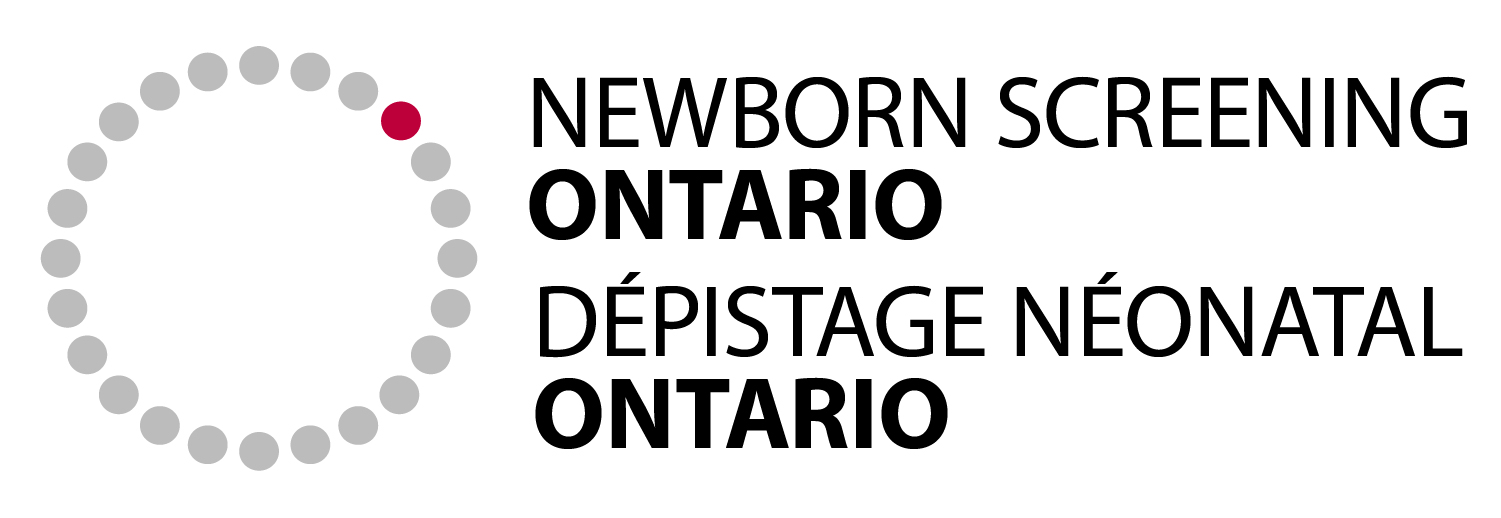- Newborn screening can identify babies who have one of three different types of sickle cell disease: hemoglobin SS disease, hemoglobin SC disease and sickle/beta-thalassemia.
- Because these types of sickle cell disease are very similar, information about them is contained together on this page.
- Anyone can have sickle cell disease, but it is more common in people from African, Mediterranean, Middle Eastern and Asian communities.
Sickle Cell Disease (Sickle/Beta-Thalassemia)
At a glance
| Approximate incidence in Ontario: | Marker measured: | Screening can prevent: | Treatment: |
| 1 in 400 in some populations | Hemoglobin patterns | Infection and sepsis, growth delay, painful sickle crises, tissue ischemia, and organ damage | Prophylactic antibiotics, pain management, blood transfusions, bone marrow transplant |
- In Ontario, a heel prick is used to take a few drops of blood from each baby shortly after birth. The blood is tested for more than 25 treatable diseases, including sickle cell disease.
- A screen positive result means that the baby likely has the disease but more tests are needed to be sure. Babies identified at a young age through screening can be treated early to help prevent health problems.
Sickle cell disease is an inherited (genetic) disease of the red blood cells that causes ongoing health problems.
- Sickle cell disease causes red blood cells to “sickle” (change from a normal doughnut shape to a crescent moon shape).
- Sickled red blood cells can stick together and block blood vessels. This is called a sickling crisis. It can cause severe pain, damage to tissue and organs and even stroke.
- Sickled red blood cells are more fragile than usual. This can cause anemia (low red blood cell levels).
Screening positive for sickle cell disease
- It is normal for parents and guardians to feel worried when their baby has a screen positive result.
- Remember, this result means that your baby likely has sickle cell disease but more testing is needed.
- The baby’s health care provider or a health care provider at a newborn screening regional treatment centre will discuss the results with the baby’s family.
- Follow-up blood tests are important. These are arranged as quickly as possible to confirm the presence and type of sickle cell disease.
- It can take a few days to weeks to confirm that a baby has sickle cell disease. This waiting period can be hard for families.
- Early diagnosis helps people with all types of sickle cell disease live healthier lives.
Possible follow-up test results
- Abnormal – the baby does have sickle cell disease. The family will be supported by a team of caring specialists who will ensure that the baby gets the best care possible.
- Normal – in rare cases, the follow-up testing is normal and the baby does not have sickle cell disease.
Babies with sickle cell disease usually have no signs at birth. Over time, anemia and blocked blood vessels cause the symptoms of this disease.
Symptoms typically appear during infancy or early childhood and include:
- painful swelling of the hands and feet
- cold hands and feet
- tiredness
- paleness
- breathing problems
- yellowish skin (jaundice)
Symptoms can range from mild in some people to serious in others.
Early treatment helps to prevent serious and life-threatening health problems such as:
- complicated infections
- organ damage
- stroke
- Pain medications can be given when needed.
- Daily antibiotics can prevent repeated infections.
- A medication called hydroxyurea reduces sickling and is given in severe cases.
- Blood transfusions are sometimes used if red blood cell levels drop too low.
- Urgent medical care is important if the baby has a fever.
Living with sickle cell disease
- Treatment helps children with sickle cell disease live healthier lives with fewer symptoms.
- Even with treatment, children may experience some symptoms of the disease such as anemia and painful episodes.
- Most children can have a very good quality of life by learning to manage the disease.
If your baby has screened positive for sickle cell disease, click here for more information.
Contact Us
Children’s Hospital of Eastern Ontario
415 Smyth Road
Ottawa, Ontario K1H 8M8
Toll-Free: 1-877-627-8330
Local: (613) 738-3222
Fax: (613) 738-0853
